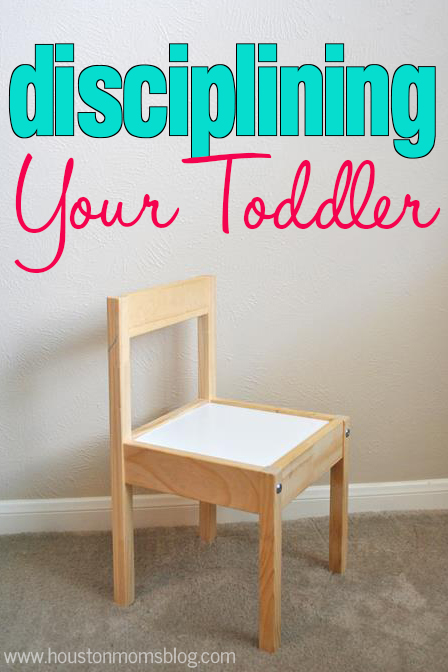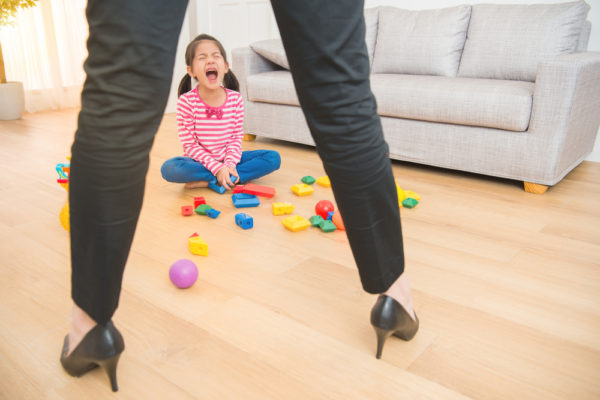The Terrible Twos. I think all moms are warned about this stage. As my 6 little ones are entering toddlerhood, I have mixed emotions. I was ready for the baby phase to end – going back and forth to carry each one to a new location, making and cleaning bottles, the feedings, the crying, the sleep training… Yep, I was ready to move on. Don’t get me wrong, there were things I enjoyed about the teeny babies, but I’m having more fun with the toddlers. I love watching them learn something new everyday and seeing their 6 completely different personalities develop. But with that comes the independence, the testing of limits, and the tantrums. When your sweet little ones can go from this…

to this…

In a millisecond. For no good reason. And you can’t talk them out of it.
Back in my former life {pre-babies}, I worked as a school psychologist. As part of the job, I assisted teachers and parents with behavior management. I loved brainstorming and developing plans and helping implement the strategies to correct behaviors. But you know what? With your own kids it is SO. MUCH. HARDER. Everything I know is being tested right now, and the only thing saving me is that obnoxious school psychologist voice in my head. It reminds me of what I should be doing when my kids act up and what I’m teaching them when I want to take the easy way out. {For the record, I do not always listen.} And here’s what I’ve learned ::
Be Consistent
Consistency is the absolute key to discipline {and any other sort of behavior change}! I cannot stress it enough. Be consistent. Be consistent. Be consistent. Whatever method of discipline you choose – time outs, restitution, spanking, privilege removal… be consistent with your follow through. This also goes for everyone who helps care for and discipline your kids. You all have to be on the same page. If you give a warning and they misbehave again, follow through! Do not give warnings if you can’t follow through. With consistent discipline you are establishing your authority, with meaningless warnings you are removing it.
Be Quick
Right along with being consistent is being immediate. Long gone are the days of “wait until your father gets home.” In my house, by the time Dad gets home we’ve all forgotten what happened that morning. More importantly, your toddler will not make the connection between the behavior and the punishment when there’s so much time in between. As soon as they misbehave, intervene. Trust me, I know it’s hard to always follow through immediately after a misbehavior, but do your best. If you mess it up or miss it a few times, just get it the next time. There’s always a next time!
Be Positive
Discipline and punishment can all be so negative. People often don’t realize what a huge impact being positive can have on kids’ behavior. Praise the positive! I’m talking anything positive – especially if it’s a behavior you’re working on. If you like what they’re doing, let them know! Trying to get your toddler to use a fork? “Oh look, Johnny’s holding his fork so nicely!” “Wow! Johnny got his chicken on his fork!” “Yea! Johnny put the chicken in his mouth!” You get the picture. You may hear yourself and think you sound like a babbling idiot on repeat, but your kid is loving it. With having multiples, I’ll frequently see one kid change their behavior when they see me praising someone else. Kids crave attention from their parents. If they can easily earn positive attention, they’ll do it. If you’re mostly giving out negative attention, they’ll work for that too. Try to make it positive – everyone’s happier that way.
Be Realistic
…with your expectations. Toddlers are easily overwhelmed with words and information. Pick 2-3 basic rules, like no hitting and no throwing, to start with. Use these to establish your discipline method, and you can add on as your child matures. Don’t be afraid to play around until you figure out what works for your family. It’ll take some time {and a lot of patience}, but it will happen. Also, be realistic of what your child can handle. Don’t put them in situations where they’re likely to meltdown and expect them to behave nicely. That’s just really no fun for anyone.
Be Tough
Discipline and positive reinforcement is HARD! It can be exhausting, but as a parent you have to toughen up. Stick to your guns! Do not give in! Giving in to the toddler can ruin a lot of hard work on a behavior. Remember you are teaching them how to behave and lessons learned now will stay with them as they grow up. And don’t forget that you’re always a model of behavior for them. I know, scary thought.
Time Out Tips
Right before my kids turned two, I started experimenting with the whole time out thing. I didn’t realize how much goes into setting up a good time out system – where, what, how long, etc. After changing everything a few times, I think I may have a working system. I am still constantly picking them up and putting them back in time out as they attempt escapes, but at least they all don’t think being put in time out is a fun activity anymore. If you’re thinking about starting time outs with your little one, here are some things to consider:
- Where? A corner, a room, a chair, a mat, a pack-n-play? So many options! Whatever you choose, make sure it is not a reinforcing environment; meaning, there is no fun to be had there. Preferably the spot is not used for any other reason than time out.
- How Long? General rule is one minute per age. So, a 3-year-old is in time out for 3 minutes. I’m a huge fan of timers. You don’t have to keep track yourself, and it gives the kiddos something to focus on instead of being angry at you. Expect escape attempts. You will have to put in some time teaching them to stay in time out through its duration. That’s why it’s best to establish time outs when you’re much bigger than your child.
- Why? It’s good practice to explain to your child what they did to be put in time out. I usually tell them as they’re being put there and again once it’s over and they’re calm. Hopefully they’ll learn one day.

Now it’s your turn! Any tips and tricks to add? Any behaviors that never seem to get under control? Leave a comment below.
















We use time out, for the big things. Like hitting, kicking, throwing. Those are solid no-no rules and it gets a time out. For some things though, like not listening, resisting doing something like.. say brushing your teeth or getting on your pajamas. We use privileges. The little guy has only recently discovered video games. We limit him to an hour or less a day, but he has to EARN that hour by being good and doing what we say. If he can’t do it, he doesn’t get his video games while I’m cooking dinner. And ANY toy that gets thrown, is MY toy for 24 hours. Those mostly work for our son so far.
But we have learned, that discipline changes as you go along. Things that worked a year ago don’t work anymore, and we change our tactics slightly. Finding what really works with him as he gets older and wiser.
This is the third time I’ve seen this article in my Facebook newsfeed, and it’s the third time I’ve shaken my head in disbelief. As a school psychologist this author should know that time outs and spanking are not effective forms of disciple for children of any age. This is not simply my opinion, there is a plethora of research out there that proves this. Furthermore, I find spanking children deplorable and I can’t believe that any professional would even mention it as something that is ok to do.
Melanie, Thank you for sharing your opinion and research findings. There is research for and against many discipline techniques, including time out and spanking. I have found what all research says is the discipline is effective only if it is appropriately and correctly implemented- no matter the technique. Of course, as any parents knows- easier said than done. I shared what works for my family, but I’m open to new ideas, so feel free to share how you discipline your toddler. Also, HMB is always looking for guest contributors if you’d like to write a post on how you do discipline.